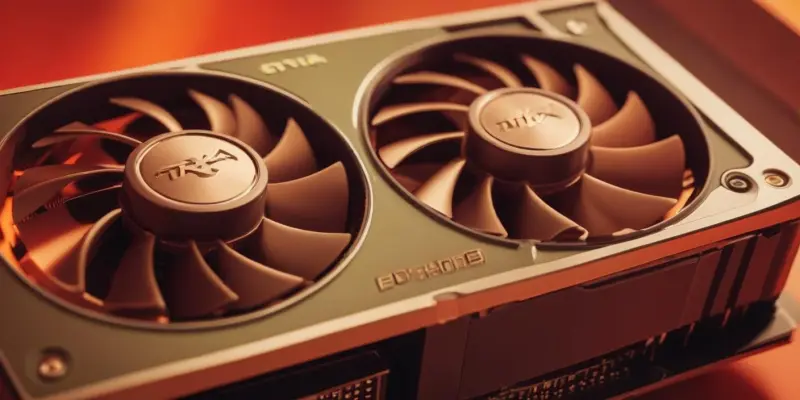The newly leaked synthetic benchmark results for Nvidia’s RTX 5060 Ti graphics card have garnered significant attention in the tech community, hinting at curious yet modest gains over its predecessor, the RTX 4060 Ti. These early benchmarks suggest approximately a 20% increase in performance, though this improvement varies considerably across different tests and resolutions. With Nvidia’s consistent push towards enhancing graphical capabilities, expectations were high, yet the RTX 5060 Ti appears to offer incremental rather than revolutionary advancements.
Benchmark Performance Overview
The RTX 5060 Ti demonstrated a tangible improvement in synthetic benchmarks, notably at 1440p resolutions. For instance, in the 3DMark Speed Way benchmark, the RTX 5060 Ti scored 4,055 points, effectively outpacing the RTX 4060 Ti’s 3,239 points, marking a 20% performance boost. In contrast, the RTX 5070 scored significantly higher at 5,745 points, highlighting a wider gap in the 50-series. Moving to higher resolutions like 4K, the performance gains of the RTX 5060 Ti were less pronounced. The Steel Nomad benchmarks indicated only a 17% improvement over the RTX 4060 Ti. Moreover, Time Spy Extreme benchmarks at 4K revealed a 14% increase, with the RTX 5060 Ti achieving 7,136 points against the RTX 4060 Ti’s 6,135 points. However, the RTX 5070 Ti’s score of 10,675 points showcased a substantial 49.6% lead over the RTX 5060 Ti. These statistics underline that while the RTX 5060 Ti does improve upon its predecessor, it remains behind other 50-series cards like the 5070 and 5090.
Real-World Gaming Performance and Pricing Anticipation
Though synthetic benchmarks offer a glimpse into raw graphical capabilities, they don’t always reflect real-world gaming performance. The RTX 5060 Ti is expected to deliver enhanced ray tracing and DLSS (Deep Learning Super Sampling) features due to newer RT cores and advanced Tensor core designs. These improvements could translate to better gaming experiences, especially in titles that leverage these technologies heavily. However, there’s a clear sentiment in the community that the RTX 5060 Ti, while competent, doesn’t represent a giant leap forward compared to the RTX 4060 Ti or its other 50-series counterparts. The pricing of the RTX 5060 Ti has been a subject of considerable speculation. Gamers and enthusiasts are eager to see if Nvidia will offer a more affordable entry point into the 50-series cards. Although specific pricing details have yet to be released, the anticipation around this card’s launch remains high. Historically, Nvidia has balanced its pricing strategy to cater both to budget-conscious consumers and those seeking cutting-edge performance, making the imminent pricing announcement a critical factor for prospective buyers.
Modest Evolution in Nvidia’s Hardware
Nvidia’s RTX 5060 Ti, despite its performance improvements, doesn’t signify a major evolution in the company’s hardware lineup. The broader sentiments within the tech community suggest that the Blackwell generation has been relatively uninspiring. This perception is primarily due to ongoing driver and hardware challenges, which have tempered excitement for new releases. The RTX 5060 Ti’s modest gains align with a recurring theme where recent Nvidia product iterations exhibit incremental enhancements rather than groundbreaking changes.
Potential buyers should approach the RTX 5060 Ti with realistic expectations. While the card does improve upon its predecessor in terms of raw rasterization performance and synthetic benchmarks, it does not constitute a significant advancement. Instead, it represents a steady enhancement in the 50-series’ capabilities, suitable for those looking to upgrade from the 4060 Ti without venturing into higher-tier models. This balanced performance profile places the RTX 5060 Ti in a competitive yet measured position within the graphics card market.
Conclusion
The recently leaked synthetic benchmark results for Nvidia’s RTX 5060 Ti graphics card have sparked considerable interest within the tech community. These findings suggest modest yet intriguing gains over its predecessor, the RTX 4060 Ti. Preliminary benchmarks indicate around a 20% increase in performance, but this improvement varies notably across different tests and resolutions. Nvidia has consistently aimed to enhance its graphical capabilities, fueling high expectations. Nonetheless, the RTX 5060 Ti seems to deliver incremental rather than groundbreaking advancements. While the 20% performance boost is noteworthy, it underscores the incremental evolution in Nvidia’s GPU architecture rather than a revolutionary leap forward. Enthusiasts hoping for monumental changes were likely left wanting more. This pattern suggests Nvidia’s focus may be on maintaining steady improvements rather than radical shifts in their product lineup. Overall, the RTX 5060 Ti promises to be a solid upgrade, but it remains to be seen how well it will resonate with users seeking the next big leap in graphics technology.

